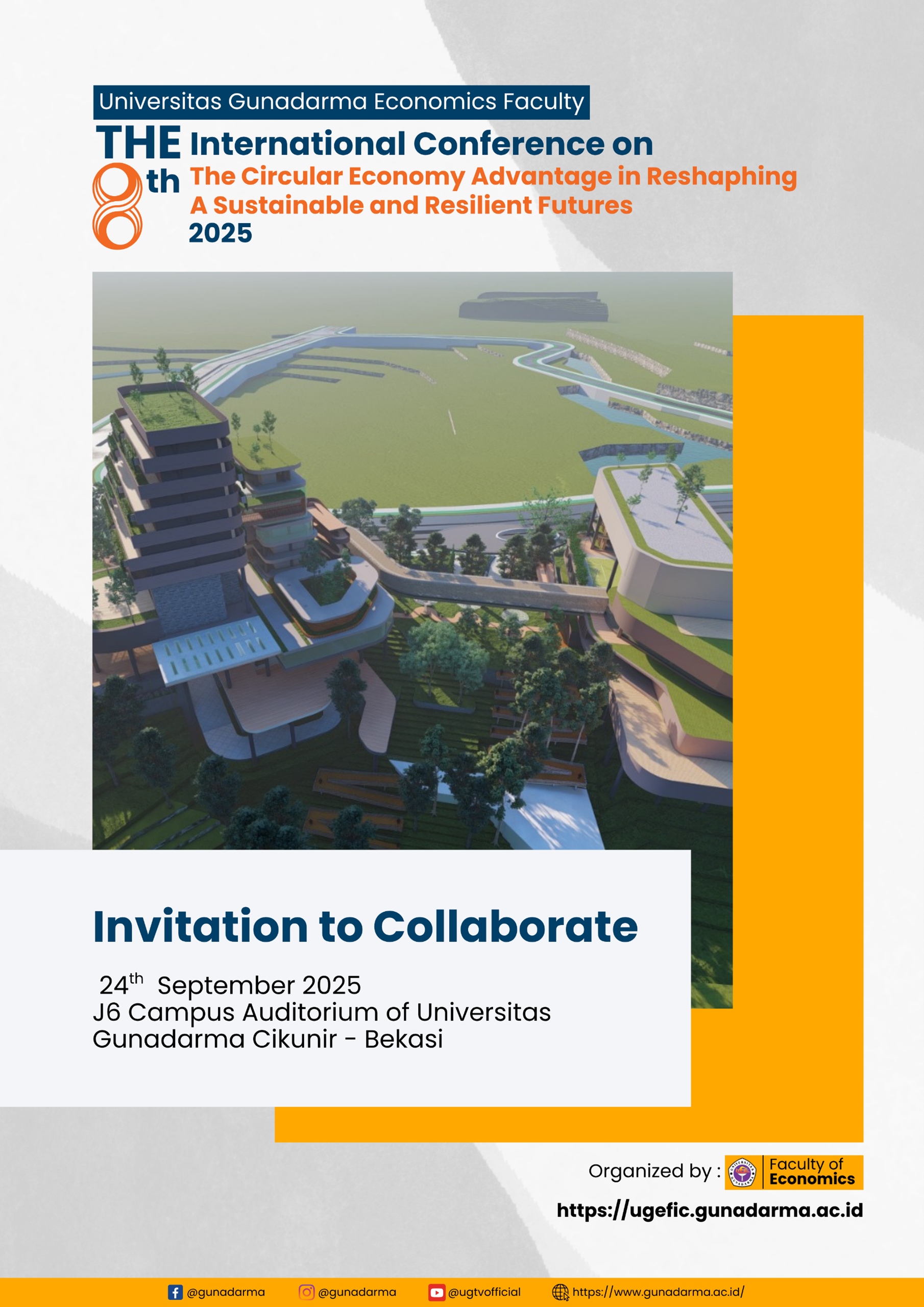UG ECONOMIC FACULTY INTERNATIONAL CONFERENCE 2025
UG ECONOMIC FACULTY INTERNATIONAL CONFERENCE 2025
“The Circular Economy Advantage in Reshaping a Sustainable and Resilient Future”

The global economy is currently facing various challenges, including environmental crises, depletion of natural resources, and economic instability. The traditional linear economic system, based on the concept of "take, make, dispose," has proven to be unsustainable in the long term. In response to these challenges, the circular economy offers a more sustainable approach by emphasizing waste reduction, resource reuse, and material recycling.
As global consumption continues to rise, the exploitation of natural resources has intensified, leading to environmental degradation and increased greenhouse gas emissions. The circular economy approach seeks to address these issues by creating a system that closes the product life cycle through redesigning production processes, reusing materials, and optimizing resources. This not only helps reduce environmental impact but also enhances economic resilience by creating more efficient supply chains and reducing dependence on new resources.
Furthermore, the circular economy has become a crucial strategy in various global policies, including the United Nations’ Sustainable Development Goals (SDGs). Many countries and companies have adopted these principles as a step toward a greener and more resilient future. By leveraging innovative technologies such as artificial intelligence, the Internet of Things (IoT), and biotechnology, the circular economy can drive industrial transformation toward greater efficiency and environmental sustainability.
This international seminar aims to explore the benefits of the circular economy in shaping a more sustainable and resilient future. By bringing together experts from various fields, the seminar will serve as a platform for discussions on experiences, strategies, and challenges in adopting the circular economy across different sectors. It is expected that through this seminar, various stakeholders can collaborate and formulate policy recommendations and best practices for implementing the circular economy